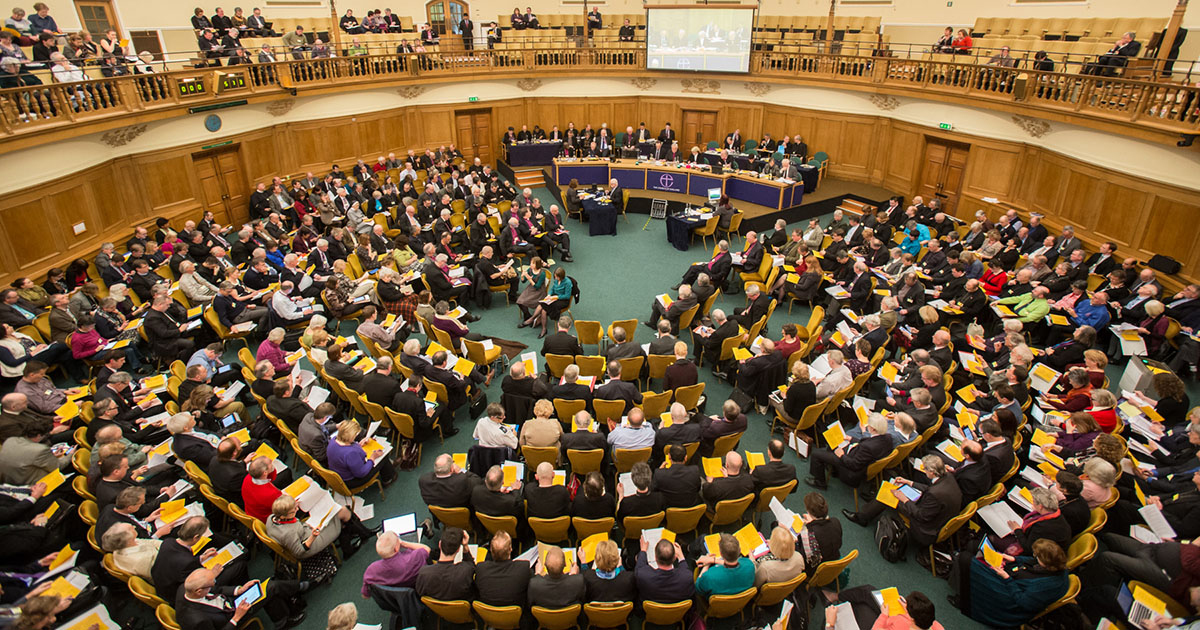nb: there has been an update since this post was published. Click here after reading this page.
Many people have expressed concern, anger, shock and outrage over the Archbishops’ Council’s decision to sack the members of the new Independent Safeguarding Board. The decision has generated mixed feelings. Many members of General Synod were equally angered that we were being denied a debate on this important matter. Instead, when the General Synod gathered this weekend in York, we were offered an explanatory paper and a presentation with a question-and-answer session.
The problem with presentations and questions at General Synod, is that Standing Orders do not allow members to make points. Any attempt to veer away from a question and inject a viewpoint, an opinion, or a factual background to a question is likely to result in a gentle rebuke from the Chair and a request that you get to your question.
The decision to close the Independent Safeguarding Board, and the manner in which it was done, is a significant decision. It is reported that the Archbishops’ Council made a self-referral to its regulator, the Charity Commission, under the rules required for reporting what are deemed “Serious Incidents”. So it should be subject to a proper debate and scrutiny by the General Synod.
I have today tabled a “Following Motion” under General Synod Standing Order 105(6). This means that a debate can be forced at Synod.
The motion reads as follows:
This Synod —
- is dismayed by the recent decision of the Archbishops’ Council to disband the Independent Safeguarding Board and terminate the contracts of its members;
- notes that a Serious Incident Report has been made to the Charity Commission in respect of this governance decision;
- recognises and laments that any working relationship between many survivors and victims with the Archbishops’ Council has been broken;
- in consequence, calls upon the Archbishops’ Council, working with its Audit Committee, to commission an independent inquiry led by a senior lawyer (judge or King’s Counsel) into the safeguarding bodies, functions, policies and practice in and of the Church of England, to report within a maximum period of 12 months, and
- requires that the report of that Inquiry be fully debated by the Synod to enable it to make decisions about future safeguarding in the Church of England.
I have also prepared a briefing paper to provide a background to the Independent Safeguarding Board; and why it is important for an independent inquiry to be established to advise the General Synod on the next steps that it can take to further good safeguarding in the Church of England.
This is not a motion of no confidence. During discussion with other Synod members during the drafting of this motion, a range of views were expressed, including an outright vote of no confidence and an expression of being “deeply concerned” about the Archbishops’ Council’s ability to deliver good safeguarding.
We settled on taking that out altogether. What is the point of expressing no confidence if nothing changes? Sure, it will generate headlines and cause a headache for the Archbishops’ Council and central secretariat; but that is not what we’re trying to do. What we’re trying to do is to get real change. And, for that, we need an independent inquiry.
We didn’t want to distract from calls for that by having the debate focused on whether Synod has no confidence in the Archbishops’ Council. We hope that motion as it stands will generate sufficient support from General Synod in order to pass so that we can ensure an independent evaluation of safeguarding in the Church of England takes place, which will help to shape future good practice, and a simplified structure in which victims are treated well.
Of course, we all long for a Church where there are no new victims. And prevention is an important part of good safeguarding. But abusers will latch on to institutions where they can find children and vulnerable adults. When that happens, proper, consistent, victim-centred approaches need to be in place.
nb: there has been an update since this post was published. Click here to read it.
Further reading:
- The Report to General Synod by William Nye, Secretary General, on behalf of the Archbishops’ Council.
- Background Briefing on the Following Motion.
